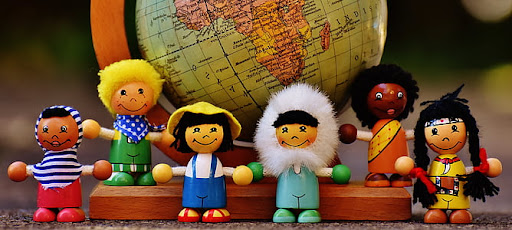Culture is a broad term that encompasses our values, beliefs, customs, and traditions. It is passed down from generation to generation, and it shapes the way we see the world and our place in it.
Culture is a powerful force that can shape our lives in many ways, including our development and mental health. As parents, it’s important to be aware of how our child’s culture may be impacting their mental health, so that we can provide them with the support they need.
Ways culture can impact a child’s mental health:
- Culture can influence a child’s sense of identity. Culture helps children to develop a sense of who they are and where they belong. It provides them with a framework for understanding themselves and their place in the world. Children who feel a strong sense of belonging to their culture often have better mental health outcomes. However, children who feel isolated from their culture, or who experience discrimination because of their culture, may be more likely to experience mental health problems.
- Culture teaches children about what is important in life. It shapes their values and beliefs, which guide their behavior and decisions. Culture can influence a child’s expectations and values. Children who are raised in cultures that emphasize values such as hard work, perseverance, and respect for others are often more resilient in the face of challenges. However, children who are raised in cultures that have high expectations for academic achievement or financial success may be more likely to experience anxiety or depression if they don’t meet these expectations.
- Culture can influence a child’s coping mechanisms. Some cultures have strong traditions of support and community, and children from these cultures may have more resources to draw on when they are struggling. However, children from cultures that are less supportive or that stigmatize mental illness may be less likely to seek help when they need it.
- Relationships: Culture influences the way that children interact with others. It teaches them about social norms and expectations, and it helps them to develop communication and conflict resolution skills.
- Well-being: Culture can have a positive or negative impact on a child’s well-being. Children who are raised in supportive and nurturing cultures are more likely to be happy and healthy. However, children who are raised in cultures that are discriminatory or oppressive may be more likely to experience mental health problems.
As parents, it is important to be aware of the impact of culture on our children. We can help our children to develop a positive and healthy cultural identity. We can also help our children to develop strong values by modeling positive behavior and by teaching them about the importance of respect, empathy, and tolerance.
How parents can support their children’s cultural development:
- Teach your child about your culture and traditions. This may include sharing stories, songs, food, and other cultural activities with your child. It is also important to talk to your child about your family history and the values that are important to you.
- Help your child to connect with other members of your community. This may involve taking your child to cultural events, enrolling them in cultural classes, or introducing them to other families who share your culture.
- Encourage your child to learn about other cultures. This may involve reading books, watching movies, or traveling to different countries. It is important to teach your child about the importance of diversity and tolerance.
- Be a role model for your child. Show your child that you respect and value all cultures. Avoid making negative stereotypes or generalizations about people from other cultures.
Here are a few things that parents can do to support their child’s mental health in the context of culture:
- Help your child to develop a strong sense of identity. This may involve teaching them about your culture and traditions, and helping them to connect with other members of your community. It is also important to validate your child’s cultural identity, even if it is different from your own.
- Talk to your child about their expectations and values. Help them to understand that it is okay to have their own goals and values, even if they are different from what is expected of them by their culture. It is also important to teach your child about diversity and tolerance, so that they are more accepting of others who are different from them.
- Teach your child healthy coping mechanisms. This may include things like relaxation techniques, problem-solving skills, and communication skills. It is also important to create a supportive home environment where your child feels comfortable talking to you about their problems.
- Seek professional help if needed. If you are concerned about your child’s mental health, don’t hesitate to seek professional help. A therapist can provide your child with support and guidance, and help them to develop coping skills to deal with the challenges they are facing. Contact us if you need support in this area.
It is important to remember that culture is just one factor that influences a child’s mental health. Other factors, such as genetics, parenting style, and life experiences, also play a role. However, by being aware of the impact of culture on mental health, parents can better support their child’s emotional well-being. By supporting your child’s cultural development, you can help them to develop a strong sense of identity, positive values, and healthy relationships. This will give them a foundation for success in all areas of their lives.

